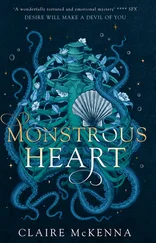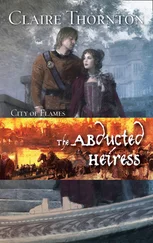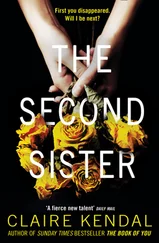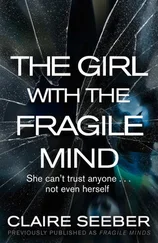Gustavo sighed but didn’t say that he used to laugh loud as a boy, before he had to grow up quick and hard.
“I could use a smile,” Ned added.
The journey had been difficult. They had witnessed unspeakable atrocities. Ned told Gustavo that he wasn’t going to look down to the ground anymore, couldn’t look down anymore, and Gustavo nodded in understanding. For hours, Ned kept his eyes on the distant horizon while Gustavo quietly absorbed the horrors for the both of them.
“I keep thinking about those people,” Ned said.
He had a habit of stating the obvious. Both men couldn’t stop thinking about survivors stretching their faces with screams.
“I keep seeing—”
“We can’t save them,” Gustavo said firmly.
He grabbed the spent bullet hanging from his neck and held it in a fist. He had the weight of his brother’s death hanging on him. He didn’t need guilt over strangers.
“I know,” Ned conceded. “Still… I think about them just as I think about everyone from Healy . I wonder what happened to my buddy Malcolm and Captain Weber. Are they okay? Are they even alive? What about Greg and Matty? Or your bunkmate, Jack?”
“You need to give me the gun and go to sleep,” Gustavo said, losing his temper.
Ned pulled his cap back and leveled his eyes at Gustavo. “You ever shot a gun?”
Gustavo squeezed the spent bullet until its warped metal cut into his palm. The answer was no and yes. It was complicated. What about Gustavo wasn’t complicated?
“I didn’t have to shoot a gun because I hired a pistoleiro to shoot it for me. I used the money from my Nobel award to murder the men who murdered my brother.”
Ned asked what the hell he was talking about.
“The rancher,” Gustavo said. “It was a rich rancher from Mato Grosso who hired men to kill me. He tried to steal land that belonged to Indian tribes. I helped the tribes protest, and I contacted reporters. He tried to have me killed, but it was my twin brother who was shot instead. So I paid for revenge. Money really can buy everything on the forest frontier.”
Gustavo had kept his hands clean and escaped to the United States to avoid extradition.
“A priest told me the death of my enemies wouldn’t bring me peace,” Gustavo added. “But I did it anyway… and I’m not sorry. Now give me the fucking gun.”
While Ned slept, Gustavo clutched their rifle and thought of his village and his fatherless nephews. He mouthed the words in Wayãpi: I will find a way to return to you . And I will strike down all who block my path.
Kourou, French Guiana May 8 T-minus 47 days to nuclear detonation
THREE DAYS AFTER the successful Ariane launch, Love saw a tall, shaggy man waiting by the door of the Penthouse, her utility closet in the Space Museum. He wore the same military jumpsuit as Love. His long beard was unkempt, and one of the lenses of his eyeglasses had a crack running through it.
“This is against the rules,” the man told Love immediately. “We still have the mission.”
Whether to prove a point or acting on paranoid reflex, the man checked his watch for countdown to interception and nuclear detonation.
“Then why are you here?” Love shot back.
“Amy Kowalski can be convincing.”
It was true. Amy would also lie down in traffic for a friend, no matter that she was desperately waiting for the mind of her lover to return to his body. When Love came to her at Ben’s bedside in the infirmary and begged for a favor—now that humanity had a fighting chance—Amy agreed.
“I need you to find someone,” Love said to the man, pulling her shoulders back and lifting her chin.
Love understood the Effort rules: there was the mission and nothing else. No room was left for family, country, religion, ideology, or even self. All had to be sacrificed for the greatest purpose in the history of the species. Love had followed the rules faithfully, but now she was breaking them. Letting on to her heavy guilt wouldn’t get what she wanted, however.
“Her name is Rivka Shulman. Caucasian, brown curly hair, brown eyes. She lives in the Bronx but was subletting an apartment in Harlem. Her parents live on the Upper West Side. She might have reconciled with them—shouldn’t you be writing this down, or something?”
Love stepped forward until she was less than three feet away. She looked at the man closely, under the beard and disheveled hair, under the dead-eyed stare cracked in half.
“Troy Andrews,” she said finally. “You’ve changed.”
He was no longer the handsome, smiling man from UN headquarters in Manhattan.
“It’s best to remember your home and family as it all was,” he said softly. “Trust me.”
Troy stepped past her and made for the stairs.
“Will you look for her?” Love called out.
Troy didn’t look back as he answered with a voice that was tired and sad, but resolute.
“Your girlfriend is dead, Love.”
But these were just words spoken by one man. Love shook her head. No, not Rivka. She sprinted ahead of Troy and turned to block in his path.
“You want to know?” Troy sighed. “Everyone wants to know—until they know.”
But Love was ready to beat the truth out of Troy if she had to. He saw it in her eyes. Troy readied his hands for a fight as he breathed deeply to fill his lungs and say what he knew.
“New York City was a disaster zone, like the other major cities…”
Those who could get out, did. The rest, Troy said, were stranded as services shut down. Once the markets and restaurants were picked clean, there was nothing to feed more than 8 million New Yorkers surrounded by concrete. Hoarding and looting were rampant. Local law enforcement failed as officers stopped reporting for duty to stay home and protect their own families. Municipal systems and supply chains broke as more and more people stopped going to work out of fear as the murder rate spiked. And that was only the beginning.
“We were in touch with UN headquarters while they still had power,” Troy said. “Manhattan had walled itself off from most of the violence in the outer boroughs. Paratroopers dropped down in October and gave them a shot in the arm in terms of food and restored order, but it was temporary.”
Love’s jaw was moving without sound. She finally managed a small voice.
“I didn’t know—”
“You didn’t have to. You were lucky that way.”
Troy hung his head and said he was sorry. He looked like he meant it, reluctantly; there didn’t seem much sorrow left in him to give.
“We lost contact with headquarters after their power grid failed in the hurricane. That must have been around when the accident happened.”
“What hurricane? What accident?”
Troy blinked several times in a row.
“There was a nuclear accident during a hurricane on the East Coast,” he said slowly. “Our drones detected massive levels of radiation near a reactor in Connecticut. We found the explosion.”
Once the power is out, Troy said, a nuclear facility running on backup generators has a limited window to shut down the reactor. It wasn’t too surprising that something went wrong in one of many nuclear reactors clustered by the coast, given the circumstances: a good portion of the personnel had abandoned their posts after more and more police guarding the facilities abandoned their posts; the minds of the rest were clouded with existential dread; they must have figured the world was about to be smashed by an extinction-class comet anyway; and the lives of operators and their families were in danger from lawlessness and natural catastrophe with severe flooding and high winds.
Читать дальше












